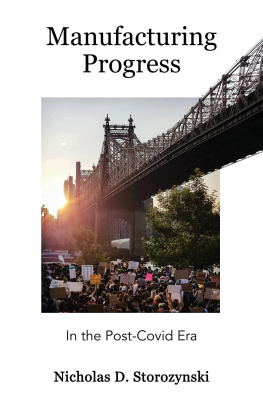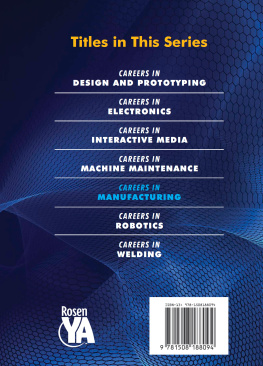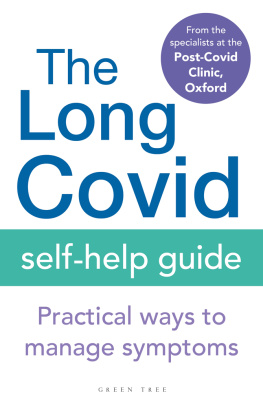Authors Note
Theres a growing consensus that something, or everything, in American politics is going wrong.
For those of us who were Obama Democrats, it seems this sand in the gears has just blown in. Sure, things have changed. You could credibly say this change started during the Reagan years, or that things started spiraling out of control with the Newt Gingrich-led impeachment and government shutdown, or that George W. Bush was the true end of Americas heroic world leadership. Ok, finesome might say that things were good until opinion pieces like those by Bill OReilly or Sean Hannity began masquerading as news and ended civility in our national discourse. But definitely, absolutely, the last time things were on the rails was 2016. Promise.
Theres a great case to be made for each, so the one I would point to in casual conversation is usually the last one I was thinking about, in much the same way that my favorite Tarantino movie is whichever one Ive seen most recently (currently The Hateful Eight). No matter which one we discuss, therefore, I would tend to agree.
For those further to the left than Obama-style Democrats, the belief is that this system was designed to run with sand in the gears. America was built on slavery and stolen ground, dragged its feet through Reconstruction, and didnt pass the Civil Rights Act until peaceful protests turned to riots after Dr. Kings assassination, or so the argument goes. Or maybe its the system of capitalism itself, based upon the exploitation of the working class, and expanding across the globe for sweatshops in Asia, wars for oil in the Middle East, and coups in Bolivia to ensure dirt-cheap prices for the rare metals found in Tesla batteries.
Well, when you point out all the atrocities like that, its hard to disagree.
Theres an old saying that Someone who is nice to me, but not to the waiter, isnt a nice person. For those people, America is a diner who insulted the waiter, left no tip, and then followed him out to the parking lot to knock him out and steal the gas money from his wallet.
Debating between one or the other is wasting time from implementing real change. Its possible to admit that some things are built into the system and try to change them and to admit that things have gotten worse at some point in the last forty years. Thinking critically about which things have gotten worse is not only an important question unto itself but will speak to greater themes of injustice baked into the system. You can point to the fact that the War on Drugs targeted people of color, which is bad and then see a greater trend of racial injustice. You can point to the fact that cutting taxes on the wealthy leads to gross income inequality, which is bad, and then see a greater trend of economic injustice.
Lets start by asking ourselves: What exactly is going wrong, and when did this start? What did the world look like before that was the case? For at least forty years following the 1940s, America had low unemployment, lower inequality, a big social safety net, a minimum wage equivalent to $22 an hour in 2020, and a president pushing for all Americans to have access to affordable health care. Hell, there was even a time when a Republican president said that any dollar spent on war and bullets was a dollar that could be used to feed a hungry child. How do we shift the Overton window back in that direction?
(For those who would throw the baby out with the bathwater because America was built on stolen land, there are problems inherent to capitalism:
Im not a priest, but I dont think you can give confession to an abstract notion like a nation.
Im too shy to write a Revolutions for Dummies book but let me know how that goes.)
I started writing this book because I wanted to learn why liberals are so bad at talking about important issues and even worse at winning elections. I was frustrated by the fact that liberals didnt have a big picture strategy capable of beating a reality TV show host and a slew of conspiracy theorists. It then evolved into a reflection on the most important questions facing us as a nation:
What does an America that works for everyone look like?
Writing helped to organize and gather my thoughts. Hopefully, it will make my worldview make sense to someone who doesnt agree with me and change their mind for the better.
The title of this book is a reference to Manufacturing Consent by Edward S. Herman and Noam Chomsky. The main idea of the book is that the media serves in part to make people want things they wouldnt normally want. In the lead-up to the Iraq War, for example, even the New York Times was writing op-eds and phrasing their articles in a way that made the war seem inevitable, which warms people up to the idea of going to war. Normal people didnt really have anything to gain from going to war, but the media helped them to think that something bad was good for them. I want to do the opposite here and use my voice to help people realize they are allowed to demand better treatment. This is my small part to manufacture some progress in the right direction for our country. You pay your taxes, and you are allowed to want a government to work for you.
This book aims to hijack that same mechanism but by manufacturing support for progressive policies. We should be asking if $1,200 a month is enough to help our people or if we need to go to $3,000 a month. We should be demanding the money we use on missiles go to giving Medicare to all of our citizens. We should be holding our elected officials responsible for getting our moneys worth out of our tax dollars. Thats Progress.
So, heres my attempt to talk about where we are as a nation, to stitch together where we can go forward. My audience arent wonks, partly because in-depth policy detail doesnt change minds, but mostly because wonks throw terrible parties. My audience is people who vote, people who might vote but dont, the heroes who talk to the first two groups of individuals, and people who might run for office or guide the conversation in those offices.
For people who vote: I will make a case for why these progressive policies arent as crazy as they seem and will improve your lives. Push your representatives toward these positions.
For people with different beliefs than I have:












